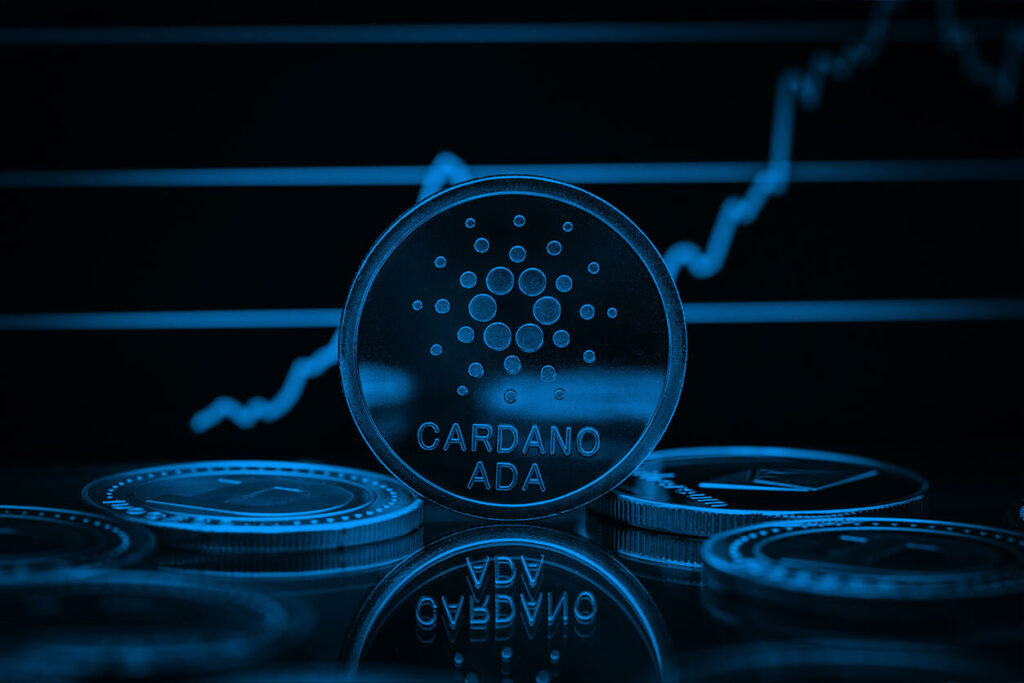The Power of Market Momentum: Driving Success in Today’s Competitive Landscape

In the dynamic world of finance, market momentum plays a pivotal role in shaping investment decisions and driving economic growth. Market momentum refers to the phenomenon where the price of a security or an entire market exhibits a sustained upward or downward trend over a period of time. Understanding and harnessing market momentum can provide traders, investors and businesses with a significant competitive advantage, enabling them to make informed decisions and capitalize on emerging trends. In this article, we will explore the concept of market momentum, its underlying factors, and provide examples of how it impacts various industries.
Defining Market Momentum
Market momentum is a powerful force that shapes investment decisions and drives economic growth. By combining technical and fundamental analysis, investors can make well-informed decisions and capitalize on emerging opportunities. However, it is essential to exercise caution and employ effective risk management strategies to navigate the potential pitfalls of market momentum.
Market momentum is a key concept in technical analysis, which focuses on studying historical price and volume data to predict future market behavior. It can be measured using various indicators, such as moving averages, relative strength index (RSI), and MACD (moving average convergence divergence).
Key Influencing Factors
Economic Indicators and News Events

Economic indicators, such as GDP growth, inflation rates, interest rates, and employment data, significantly impact market momentum. CFD traders closely monitor these indicators as they shape the sentiment and expectations of market participants. Positive economic data often generates upward market momentum, indicating a healthy economy and potential investment opportunities. Conversely, negative or unexpected economic news can trigger market declines and downward momentum. Traders need to stay informed about upcoming economic releases and news events to anticipate potential market movements and adjust their strategies accordingly.
Please always refer to our state-of-the-art Economic Calendar for keeping yourself well informed of the key Economic Indicators.
Company-Specific Factors
Company-specific factors heavily influence market momentum, particularly in stock CFD trading. Earnings reports, product launches, mergers and acquisitions, and management changes are examples of events that can impact a company’s stock price and generate market momentum. Strong financial performance, beating analyst expectations, and positive outlooks can trigger upward momentum, making the stock an attractive CFD trading opportunity. Conversely, disappointing earnings or negative news may generate downward momentum, signaling a potential short-selling opportunity for CFD traders.
Market Sentiment and Investor Behavior

Market sentiment, driven by investor behavior and psychology, plays a significant role in shaping market momentum. Positive sentiment, characterized by optimism and confidence, can fuel upward momentum as investors rush to buy and hold positions. Conversely, negative sentiment, driven by fear or uncertainty, can trigger selling pressure and downward momentum. CFD traders closely monitor market sentiment indicators, such as investor surveys, volatility indexes, and options market data, to gauge the prevailing mood and potential market direction.
Technical Analysis and Market Patterns
CFD traders rely on technical analysis to identify and capitalize on market momentum. By studying price charts, indicators, and patterns, traders can spot trends, reversals, and potential entry or exit points. Technical indicators like moving averages, relative strength index (RSI), and MACD (moving average convergence divergence) help identify overbought or oversold conditions and potential shifts in market momentum. Traders use these tools to confirm or challenge their market views and make informed trading decisions.
Unraveling the Dynamics of Market Momentum in FX, Precious Metals, Oil, Crypto, Indices, and Stock CFDs
Understanding the unique factors that influence market momentum in different financial instruments is essential for CFD traders. Below, we will explore the dynamics of market momentum in key markets, including FX, precious metals, oil, cryptocurrencies, indices, and stock CFDs. By gaining insights into the factors driving momentum in each market, traders can make informed decisions and seize profitable opportunities.

Foreign Exchange (FX)
Market Momentum Factors:
a) Economic Data and Central Bank Actions: Economic indicators, such as GDP growth, inflation rates, and interest rate decisions, influence currency values. Positive economic data or hawkish central bank actions tend to generate upward market momentum for the respective currency. Conversely, negative economic data or dovish central bank actions can lead to downward momentum.
b) Geopolitical Developments: Political events, trade disputes, and geopolitical tensions can impact currency values and generate market momentum. News related to elections, policy changes, or international conflicts may cause sudden shifts in currency prices.
Precious Metals
Market Momentum Factors:
a) Economic Factors and Inflation Expectations: Precious metals like gold and silver are considered safe-haven assets. Market momentum in precious metals is influenced by economic factors such as inflation expectations, interest rates, and global economic stability. During periods of economic uncertainty or inflation concerns, precious metals often experience upward market momentum.
b) Market Sentiment and Investor Risk Appetite: Market sentiment and investor risk appetite play a role in determining momentum in precious metals. During times of market volatility or pessimism, investors tend to seek the safety of precious metals, driving prices higher.
Oil markets
Market Momentum Factors:
a) Supply and Demand Dynamics: Oil market momentum is heavily influenced by supply and demand factors. OPEC decisions, geopolitical tensions, global economic growth, and inventory levels all impact oil prices and generate market momentum.
b) Macroeconomic Indicators: Economic data, such as GDP growth, industrial production, and transportation trends, affect oil demand and supply dynamics. Positive economic indicators can generate upward momentum, while negative indicators can lead to downward momentum.
Cryptocurrencies

Market Momentum Factors:
a) Investor Sentiment and Adoption: Cryptocurrency market momentum is highly influenced by investor sentiment and adoption rates. Positive news, regulatory developments, institutional adoption, and public perception can generate significant market momentum for cryptocurrencies.
b) Technological Advancements and Innovation: Market momentum in cryptocurrencies can be driven by technological advancements, new use cases, and innovations within the blockchain ecosystem. Positive developments often attract investors and fuel upward momentum.
Indices
Market Momentum Factors:
a) Economic Performance: Indices, such as the S&P 500 or FTSE 100, reflect the overall performance of underlying stocks in an economy. Positive economic data, strong corporate earnings, and GDP growth can generate upward market momentum for indices.
b) Investor Sentiment and Market Confidence: Market sentiment and investor confidence play a significant role in driving momentum in indices. Positive sentiment, driven by factors like optimism about economic prospects or favorable policy decisions, can lead to upward momentum.
Stock CFDs
Market Momentum Factors:
a) Company-Specific News and Earnings: Company-specific news, such as earnings reports, product launches, or mergers and acquisitions, can generate significant market momentum for stock CFDs. Strong financial performance and positive outlooks often drive upward momentum.
b) Sector Performance and Industry Trends: Market momentum in stock CFDs can be influenced by sector performance and industry trends. Technological advancements, regulatory changes, or consumer behavior shifts can impact stock prices and generate sector-specific momentum.
Harnessing Market Momentum

Technical Analysis: Traders and investors utilize technical analysis to identify market momentum patterns and make informed decisions. Chart patterns, trendlines, and indicators help identify potential entry and exit points, enabling traders to take advantage of market trends.
Fundamental Analysis: Combining market momentum with fundamental analysis allows investors to evaluate the long-term growth prospects of companies or industries. By analyzing financial statements, industry trends, and competitive advantages, investors can make strategic investment decisions based on market momentum indicators.
Risk Management: Market momentum can be both a friend and a foe, as it amplifies both gains and losses. Implementing proper risk management strategies, such as diversification, setting stop-loss orders, and disciplined portfolio rebalancing, helps mitigate potential downsides associated with market volatility.
Understanding the factors that influence market momentum in various CFD trading markets is crucial for traders seeking to capitalize on price movements. Economic indicators, geopolitical events, investor sentiment, technological advancements, and company-specific news all play a role in shaping market momentum. By staying informed, conducting thorough analysis, and aligning their trading strategies with prevailing market momentum, CFD traders can enhance their chances of making profitable trades and achieving their financial goals in FX, precious metals, oil, cryptocurrencies, indices, and stock CFDs.
* The information provided here has been prepared by Eightcap’s team of analysts. All expressions of opinion are subject to change without notice. Any opinions made may be personal to the author and do not reflect the opinions of Eightcap.
In addition to the disclaimer on our website, the material on this page does not contain a record of our trading prices, or represent an offer or solicitation for a transaction in any financial instrument. Eightcap accepts no responsibility for any use that may be made of these comments and for any consequences that result. No representation or warranty is given as to the accuracy or completeness of this information. Consequently, any person acting on it does so entirely at their own risk. Any research provided does not have regard to the specific investment objectives, financial situation and needs of any specific person who may receive it. It has not been prepared in accordance with legal requirements designed to promote the independence of investment research and as such is considered to be a marketing communication.
Please note that past performance is not a guarantee or prediction of future performance. This communication must not be reproduced or further distributed without prior permission.


